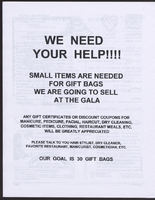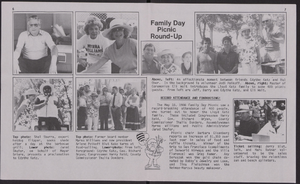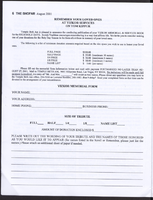Search the Special Collections and Archives Portal
Search Results
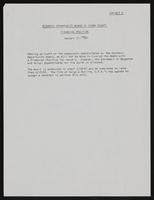
Economic Opportunity Board of Clark County (Nev.) financial and budget reports
Date
Archival Collection
Description
From the Clark County Economic Opportunity Board Records -- Series I. Administrative. This folder contains financial memos and reports of the Clark County Economic Opportunity Board in 1967.
Text

Amanda "Alex" Aikens oral history interview: transcript
Date
Archival Collection
Description
Oral history interview with Amanda "Alex" Aikens conducted by Barbara Tabach on December 28, 2017 for the Remembering 1 October Oral History Project. In this interview, Aikens discusses the support she provided for the community after the October 1, 2017 shooting in Las Vegas, Nevada along with the event at First Friday that she organized to provide counseling services for those in need. She describes her usage of Facebook as a social media platform to keep the community posted on the shooting as well as any advice and resources for those who wanted to help. Aikens expands upon her realization that people felt the need to contribute and discusses her efforts to gather a group of therapy volunteers that eventually grew so large an event space was needed. In addition to the volunteers who provided counseling and other event functions, she mentions a few of the companies that made the event possible with a donation of resources, such as First Friday that offered room space and a nearby office that supplied furniture.
Text
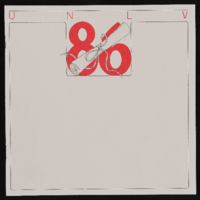
University of Nevada, Las Vegas (UNLV) 23rd commencement program
Date
Archival Collection
Description
Commencement program from University of Nevada, Las Vegas Commencement Programs and Graduation Lists (UA-00115).
Text

Kaity Webber oral history interview: transcript
Date
Archival Collection
Description
Oral history interview with Kaity Webber conducted by Barbara Tabach on November 16, 2017 for the Remembering 1 October Oral History Project. Kaity Webber describes moving to Las Vegas, Nevada and earning her degree in psychology from the University of Nevada, Las Vegas. Webber discusses the excitement she had going to the Route 91 Harvest festival with a friend on the weekend of the October 1, 2017 Las Vegas shooting. She talks about her experiences from that night, including how she found shelter in the Thomas & Mack Center with countless others, as well as her process of healing from the traumatic event.
Text

Transcript of interview with William Morgan by David G. Schwartz, October 21, 2016
Date
Archival Collection
Description
Text
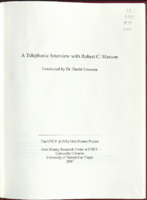
Transcript of interview with Robert C. Maxson by Dr. David Emerson, May 15, 2007
Date
Archival Collection
Description
Text

